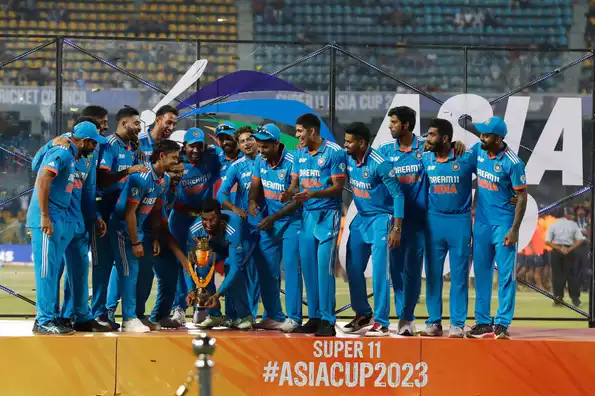The Asia Cup saga may be nearing a resolution, with a surge of optimism surrounding the continental championship. This marks a significant shift from previous uncertainties fueled by tensions between India and Pakistan.
While no definitive decisions have been made, indications suggest a formal announcement could be forthcoming next week. The Asian Cricket Council (ACC) is reportedly aiming to release the schedule for the six-team tournament in early July, coinciding with their expected convention.

The ACC is hoping for a second week of September start date, with September 10th being the targeted launch for the T20 format tournament. Alongside India and Pakistan, the participating nations will likely include Afghanistan, Sri Lanka, Bangladesh, and the UAE. Promotional activities for the event have reportedly already commenced.
The UAE remains the leading contender to host the tournament. A hybrid format is also under consideration. Due to existing agreements, the Asia Cup is to be held at a neutral venue when it is India or Pakistan's turn to host.
The tournament's future was cast into doubt following the terror attack in Pahalgam in April. Further escalation occurred after India launched Operation Sindoor against Pakistan in May, raising concerns about the tournament's viability. There were also increased calls within India to boycott Pakistan in multilateral events, as India already refrains from bilateral cricket with Pakistan. Discussions about a potential Indian boycott of Pakistan in global events were even rumored for the next ICC meeting.
However, recent developments in international cricket suggest a potential shift in direction. The International Cricket Council (ICC) recently unveiled schedules for two major global events: the Women's ODI World Cup in India and Sri Lanka, and the Women's T20 World Cup in England. Notably, India and Pakistan are slated to compete against each other in both tournaments, on October 5th in Colombo and June 14th at Edgbaston, respectively.
While official statements from the BCCI, ACC, and ICC have been absent, these scheduled matches imply a continuation of cricketing engagements between the two rivals, at least in global events. These encounters are significant revenue drivers for world cricket. The BCCI and India are not necessarily dependent on the revenue generated from these high-profile matches, governing bodies such as the ICC, the ACC, and their member boards rely on it substantially.
Newer articles
Older articles
 Black Caps Announce Packed 2025-26 Home Schedule Featuring Australia, England, West Indies & South Africa
Black Caps Announce Packed 2025-26 Home Schedule Featuring Australia, England, West Indies & South Africa
 Jaiswal Aims to Eclipse Gavaskar's 49-Year-Old Record as India Seeks Series Leveler at Edgbaston
Jaiswal Aims to Eclipse Gavaskar's 49-Year-Old Record as India Seeks Series Leveler at Edgbaston
 Rishabh Pant: Greg Chappell Lauds Indian Star's Game-Changing Cricket Revolution
Rishabh Pant: Greg Chappell Lauds Indian Star's Game-Changing Cricket Revolution
 5 Silent Signals: Spotting Prediabetes Without a Blood Test
5 Silent Signals: Spotting Prediabetes Without a Blood Test
 Samsung Unveils Galaxy A35 5G and A55 5G Pricing, Specs, and Availability
Samsung Unveils Galaxy A35 5G and A55 5G Pricing, Specs, and Availability
 India vs England: Calls Mount for Kuldeep Yadav's Inclusion in Edgbaston Test Amid Strategic Reworking
India vs England: Calls Mount for Kuldeep Yadav's Inclusion in Edgbaston Test Amid Strategic Reworking
 Cummins Lauds Australia's Solid Start in New World Test Championship Campaign
Cummins Lauds Australia's Solid Start in New World Test Championship Campaign
 Anish Giri's Jesting Remark Highlights Praggnanandhaa's Rise to Top Junior Chess Ranking
Anish Giri's Jesting Remark Highlights Praggnanandhaa's Rise to Top Junior Chess Ranking
 Science-Backed Strategies: 5 Simple Habits for a Healthier Heart
Science-Backed Strategies: 5 Simple Habits for a Healthier Heart
 The subtext of Gill's selection
The subtext of Gill's selection